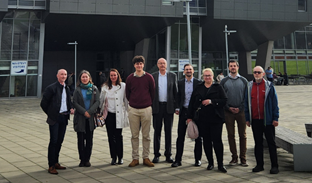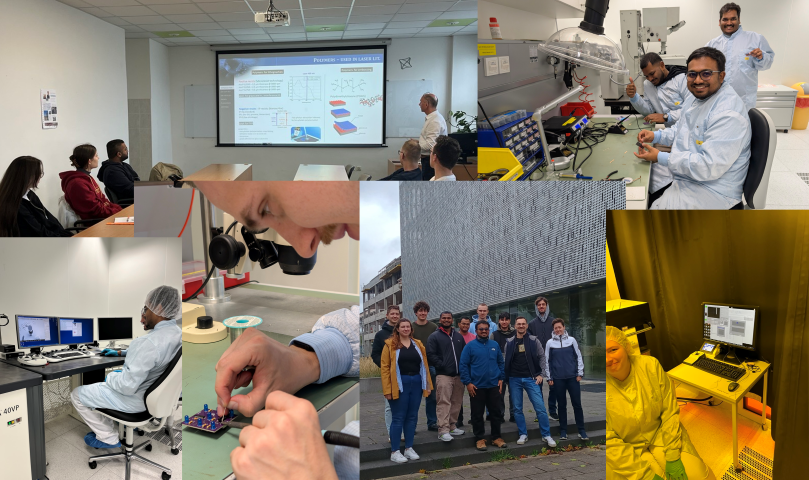
Our project centers around introducing advanced printing technologies (APT) into university education. The project aims to advocate for the use of digital additive manufacturing (DAM) technologies in teaching, especially design methods and printing technologies. DAM has a uniquely short timespan from initial idea over design process to actual manufacturing and can be utilized in some form at any university. This allows students to get direct feedback and hands-on knowledge even trough multiple iterations, without the enormous time and investment needed for traditional micro technologies. From our experience in teaching, ways to connect theory and praxis are few but urgently needed to train holistic and enthusiastic engineers and scientist.
We see 3D micro printing as a way to do this and thus aim to shorten the usual decades between scientific innovations and their arrival in academic teaching.
News

23 October 2025
TADAM3D -µP Team had the next on-site project consortia meeting in Žilina at the University of Zilina. We analysed our just completed Pilot Hands-On project student activities and made plan for the upcoming Summer School on 3D-Printing in Electrical Engineering next year 2026.

6 - 10 October 2025
Project Week 2025 Has Officially Started!
The TADAM3D Project Week has officially begun!

July - October 2025
Project work starts.
Thirteen groups with 23 students total were formed at the three universities taking part.
They will work on the theoretical side of their tasks until October.
What makes 3D technologies so interesting?
3D technologies have a fascinating range of possible applications in research and development. The variety of materials that can be used, from synthetic resins and photopolymers to metals and glass threads, makes it possible to create innovative solutions. Since they are serial, maskless processes no extra investments for templates, masks or molds have to be made and a design can become reality in no time. In addition additive manufacturing reduces material and energy waste, gives bigger freedom in design and choice of material. For micro technology the following 4 technologies are the most important and will be part of TADAM-project: Fused Deposition Modeling (FDM), Stereolithography (SLA), Two-photon polymerization (2PP), Inkjet Printing.

Funded by the European Union. Views and opinions expressed are however those of the author(s) only and do not necessarily reflect those of the European Union or NA DAAD. Neither the European Union nor the granting authority can be held responsible for them.






